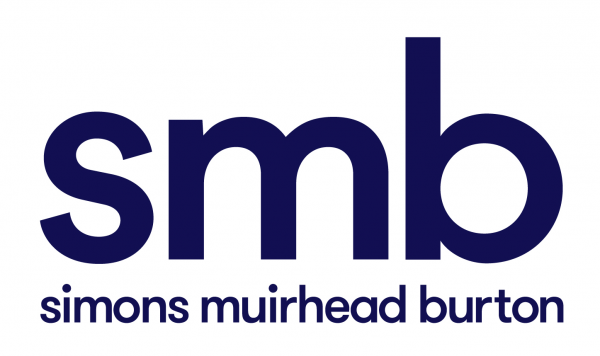2024 marks twenty years since UK Screen Alliance was first established. Audrey Lai, PR Coordinator, takes us on the company’s journey through the decades.

On the eve of the 4th of March in 2004, at BAFTA, London, post-production and VFX companies came together to discuss the formation of a much-needed trade body. This was the beginnings of UK Post, and twenty years on, it has evolved to be the UK Screen Alliance.
Before 1999, the UK facilities industry was represented by a chapter of the International Teleproduction Society (ITS), a US-based trade association, but when the ITS folded, the UK chapter went out on its own as the Image Industry Alliance (I2A). The I2A was short-lived due to a lack of funding, but its Engineering Committee survived to become the Chief Engineers of Facilities Forum (ChEFF), a stand-alone organisation that represented the TV facilities sector on technical and engineering matters.
As the post-production sector grew, there became an apparent need to have a uniform voice to advocate on behalf of post-production companies to Government, broadcasters and other industry bodies on fiscal, legislative and workforce issues. In November 2003, the UK Film Council (UKFC) and the Department of Trade and Industry (DTI) conducted a survey, in which more than 96% of post-production companies backed the creation of a new industry organisation to represent the sector. Thus, following the initial open meeting at BAFTA, a new post-production trade body was formed.
Set up with seed funding from the DTI, the aim of the new body, then called UK Post, was to represent the sector to Government, identify and tackle skills gaps within the sector; provide support to a sector, which was predominantly made up of small and medium-sized businesses; and market UK facilities on a global landscape.
Industry veteran and founder of The Moving Picture Company, Mike Luckwell was appointed as chairman, and Gaynor Davenport, led the association as its first CEO. The founding board members, were Colin Brown (Chairman of Cinesite), Neil Hatton (Managing Director of Frontier Post), David Jeffers (Managing Director of MPC), Mike Kelt (Chief Executive of Artem Visual Effects), Charlie Leonard (Managing Director of Nats), Nicky Sargent (Joint Chief Executive of The Farm Group), William Sargent (Chief Executive of Framestore CFC) and Dennis Weinreich (Managing Director of Videosonics). Within the first two months of its establishment, 70% of the top fifty post & VFX companies, as well as, the BBC, ITV and a number of emerging companies were signed up as members of UK Post, confirming the need for a trade body.
During the early days, the main focus of UK Post was to identify common causes and gain consensus from working groups. UK Post was engaged in a variety of issues, ranging from discussions on the BBC Charter Review, tax incentives for film, and visas for overseas talent.
Launched by UK Post’s audio working group in 2006, the Conch Awards were designed to recognise achievements in audio post production. The first of its kind, the awards highlighted the strength of UK sound companies and talent, and united the industry to celebrate the individuals involved in this important part of the post-production process. Not only did the awards have a significant impact on the global awareness of the talent in the UK, but they also encouraged UK companies to look more closely at the diverse talent right on their doorstep.
In 2007, UK Post was rebranded to the more inclusive UK Screen Association, as it expanded its remit to advocacy for UK service companies in the film and television screen industries, instead of solely focusing on post and VFX companies.
The following years were a tumultuous time for the industry, as it was impacted by the Writers Guild of America strike in late 2007, then the 2008 recession. The conditions were not dissimilar to those being experienced now. During this period, there was a significant decrease in inward investment films in 2008 to £338 million, compared to £523 million in 2007. As these films accounted for the majority of total UK production spend – 58% in 2008, 69% in 2007 – its impact on this side of the pond did not go unnoticed.
UK Screen published the UK Facilities Report in 2010, to comprehensively map the UK facilities sector. This vital piece of research qualified the activity, employment, expenditure and value in the sector to a more granular level than had been done before, emphasising the need for good data to underpin advocacy for policy change.
In 2012, Sarah Mackey, previously Director of Strategy at BBC Studios and Post-Production, took on the role of CEO of the association. Sarah’s tenure coincided with consultations on a new tax relief for High-End TV, and UK Screen Association was part of a coalition of organisations that campaigned for its introduction. It was also a time of technological change with the transition to file delivery of TV programmes, and UK Screen liaised with the broadcasters over the adoption of common delivery standards proposed by the DPP.
In 2016, Neil Hatton assumed the CEO role. Former owner of Frontier Post and a founding board member at the inception of the association, Neil has steered the group through the turbulent times of Brexit, the COVID-19 pandemic, the subsequent boom, and then, another halt due to the US actors’ and writers’ strikes.
Also in 2016, having formed as a voluntary advocacy group for the animation sector to press the case for animation tax relief in 2012, Animation UK was seeking to become a fully-formed trade body and had commissioned consultants Kate O’Connor and Helen Brunsdon to explore all options and consult with the industry. Neil simultaneously reached out to the Animation UK Chair and Blue Zoo MD, Oli Hyatt, to suggest joining forces. Luckily, the animation industry agreed and the rest is history.
UK Screen Association rebranded once again to be known as the UK Screen Alliance. As an alliance, and retaining the Animation UK brand and a separate Animation Council, the new partnership reflected the policy differences, as well as, large areas of shared interest, with many of the skills, roles, benefits and challenges crossing over from one sector to the other. By joining up forces, the Alliance was able to become more efficient and develop stronger policies that benefited both parties. Initially, with Helen as Director, before she left to run the British Animation Awards (BAAs), and Kate as Executive Chair of Animation, Neil Hatton became overall CEO of UK Screen Alliance and continues to head up the existing facilities remit to this day, while Kate continues to lead the work and representation of Animation UK.
The COVID-19 pandemic reaffirmed like never before, the need for an industry body. Its value as a support network for the industry came to the fore, as its members turned to the weekly online meetings for guidance and reassurance during those testing times, with more than 60 companies tuning in each week. UK Screen Alliance then authored the COVID guidance for post, VFX and animation, which allowed companies to get back to work safely.
A recurring theme of advocacy by UK Screen Alliance has been to ensure that the tax incentives for our sector are effective and optimised for growth. Animation UK has campaigned and secured a net rate of credit of 29.25% in the new animation Audio-Visual Expenditure Credit (AVEC), which is a 4.25% increase on the existing Animation Tax Credit. Animation UK also succeeded in making the case for animated features to be included in the new animation AVEC, which came into effect on the 1st of January this year.
UK Screen’s long-running campaign for a reform of the Film and High-End TV tax credits to aid VFX, finally resulted in a commitment from the Chancellor of the Exchequer in the 2023 Autumn Statement for “a more advantageous additional tax relief for expenditure on visual effects”. Following a Call for Evidence, the Government is expected to announce its proposal in the Budget this week.
Now, twenty years since the first inaugural meeting, UK Screen Alliance has grown in size, as the leading membership body and voice of over 180 leading employers in the sector. Though it has undergone many changes over the last two decades, the Alliance’s aims remain true to those stated at its inception back on this day in 2004: to advocate on behalf of the industry to represent their views at the highest levels, and to enhance the business environment in the UK, so that these sectors flourish and grow to achieve their full potential. Looking back at its history, many achievements have been made and the industry has progressed together as a whole. While there is still more to be accomplished, as there always will be, it is also important to remember where it all started and how far the Alliance has come.
To honour the 20th anniversary of UK Screen, the Alliance will be celebrating in style with a gala dinner and an awards ceremony on the 25th of April at Stationers’ Hall in London. The event will also celebrate the more recent partnership with Animation UK and their collective achievements.
As the Alliance continues to expand its services and make strides in its advocacy to represent the sector, it would like to take a moment to thank its members and its hardworking representatives who have joined them on this journey over the last two decades, whether it be from the very start or recently in the last few months – without every individual’s support, dedication and commitment, UK Screen Alliance would not be where it is today.








